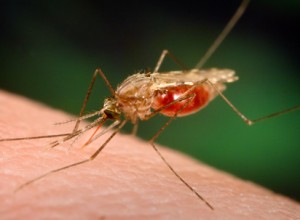Chronic malaria said to affect thinking faculty of children
 Chronic malaria affects the intellectual capabilities and weakens the thinking faculty of children, says Mrs Rose Baalaboore, the Project Co-ordinator of Hope for Future Generations (HFFG), a health centered Non-Governmental Organisation.
Chronic malaria affects the intellectual capabilities and weakens the thinking faculty of children, says Mrs Rose Baalaboore, the Project Co-ordinator of Hope for Future Generations (HFFG), a health centered Non-Governmental Organisation.
She, however, advised parents to ensure that their children always slept under mosquito treated nets to protect them from malaria.
Mrs Baalaboore gave the advice when she addressed school children, teachers and parents at a sensitisation forum on Malaria, Ebola and Cholera, to mark the 58th Independence Day celebration at Odumase in the Sunyani West District.
The HFFG organised the forum with support from United Kingdom Agency for International Development (UKAID), as part of a two-year community sensitisation project on the diseases being carried out by the organisation in 200 communities in the Brong-Ahafo Region.
She entreated parents to avoid self-medication and ensure that children with suspected cases of malaria were tested at recognised health facilities before treatment.
This, the HFFG Project Co-ordinator said, would not only reduce malaria drug resistance but would also facilitate early detection of other malaria-related diseases and reduce the number of unconfirmed cases.
On cholera, Mrs Baalaboore disclosed that 26 people died out of about 1,000 cholera confirmed cases in 2014 in the region.
“Preventable diseases should not affect and even go to the extent of claiming lives,” she said, and called on the public to ensure that they strictly adhered to preventive measures, especially promoting personal hygiene.
She sensitised the participants on the Ebola virus and asked them to adhere to preventive measures by avoiding contact with carcasses of dead and wild animals as well as minimise or at best avoid consumption of bush meat.
Source: GNA
